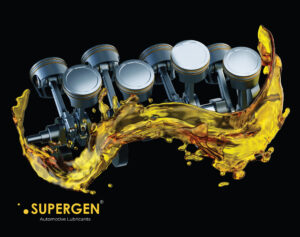Introduction:
Gear oils play a crucial role in the smooth operation and longevity of various automotive and industrial machinery. Among the numerous types available, 80W90 gear oil stands out as a popular choice for specific applications. In this blog, we’ll delve into the characteristics, composition, and most common uses of 80W90 gear oil.
Understanding 80W90 Gear Oil:
80W90 gear oil is a multi viscosity lubricant designed to meet the specific requirements of different mechanical systems. The “80” in the designation refers to the oil’s viscosity at lower temperatures, while the “90” represents its viscosity at higher temperatures. This multi viscosity property allows the oil to maintain optimal lubrication across a range of operating conditions, making it versatile for diverse applications.
Composition and Formulation:
The composition of 80W90 gear oil typically includes base oils and various additives to enhance its performance characteristics. The base oils can be mineral-based, synthetic, or a blend of both, each offering unique advantages in terms of temperature stability, oxidation resistance, and load-carrying capacity. Additives are incorporated to improve properties such as anti-wear, extreme pressure protection, and thermal stability.
Applications of 80W90 Gear Oil:
- Automotive Gearboxes: 80W90 gear oil is commonly used in manual transmissions, transaxles, and differentials of automobiles. It provides the necessary lubrication to reduce friction and wear, ensuring smooth gear operation and extended component life.
- Truck and Heavy-Duty Vehicles: Trucks and heavy-duty vehicles with manual transmissions often require robust gear oils like 80W90 to handle the higher torque and load demands. The oil’s viscosity range helps maintain proper lubrication in various driving conditions.
- Industrial Machinery: In industrial settings, 80W90 gear oil is employed in gearboxes and other machinery where extreme pressure (EP) lubrication is essential. Its ability to withstand heavy loads and resist thermal breakdown makes it suitable for diverse industrial applications.
- Farm Equipment: Tractors and other agricultural machinery, which often endure harsh operating conditions, frequently rely on 80W90 gear oil. Its robust formulation helps withstand the demands of plowing, towing, and other strenuous tasks.
- Construction Equipment: Construction machinery, such as excavators and bulldozers, operates in challenging environments. 80W90 gear oil provides the necessary protection to gears and bearings, contributing to the durability of these heavy-duty machines.
Benefits of 80W90 Gear Oil:
- Temperature Stability: The multi-viscosity nature of 80W90 gear oil allows it to maintain adequate viscosity across a broad temperature range. This ensures proper lubrication during cold starts and high-temperature operations.
- Extreme Pressure Protection: 80W90 gear oil is formulated with additives that provide excellent extreme pressure protection. This is crucial for components subjected to heavy loads, preventing wear and damage under intense operating conditions.
- Reduced Friction and Wear: The lubricating properties of 80W90 gear oil help minimize friction between moving parts, reducing wear and extending the life of gears, bearings, and other critical components.
- Corrosion Prevention: Gear oils, including 80W90, often include corrosion inhibitors that protect metal surfaces from rust and corrosion, especially in applications where water contamination is a concern.
- Noise Reduction Properties: In addition to its primary role as a lubricant, 80W90 gear oil contributes to noise reduction in gear systems. The oil’s cushioning effect helps dampen vibrations and reduce operational noise, enhancing the overall comfort and usability of the equipment.
Considerations for Usage:
When considering the usage of 80W90 gear oil, several crucial points merit careful attention. Begin by consulting the manufacturer’s recommendations, as they provide specific guidelines tailored to the unique demands of your equipment. Factor in the environmental conditions your machinery operates in, including temperature variations and load stresses, to ensure the selected viscosity aligns with these parameters.
Additionally, adhere diligently to a scheduled maintenance routine, incorporating regular inspections and timely oil changes. Proper storage is crucial to maintaining the integrity of gear oil. It should be stored in a cool, dry place, away from direct sunlight. Additionally, it’s important to be mindful of the oil’s shelf life and adhere to recommended storage conditions to ensure its effectiveness.By integrating these considerations seamlessly, you can fine-tune the application of 80W90 gear oil to match the intricacies of your machinery, fostering optimal performance, longevity, and reliability.
Conclusion:
80W90 gear oil is a versatile lubricant that finds applications in a wide range of automotive and industrial settings. Its ability to provide effective lubrication under varying conditions makes it a reliable choice for equipment subjected to demanding operations. By understanding its properties, applications, and proper usage considerations, users can ensure optimal performance and longevity of their machinery. Always follow manufacturer recommendations and best practices for maintenance to maximize the benefits of 80W90 gear oil.








